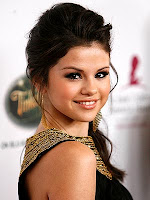I had the unique privilege of having an interview with a very talented actress, Danielle 'Danny' Deadwyler. She most recently starred in
Gospel Music Channel's (GMC),
A Cross to Bear.
As Erica, a very troubled alcoholic young mother.
Danny is a very well spoken talent, and I hope to see her in much more in the future. I hope you all enjoy reading this interview as much as I enjoyed giving it.
Interview with Danny Deadwyler
You received your BA in History from Spelman College and
your MA in American Studies from Columbia University, neither, of which have
much to do with acting.
So have you always had a passion for acting and performing?
Or did you most recently develop this interest in college?
Performance art has always been a
part of my life. My mother put me in
dance school at Marlene Rounds at five years old, which eventually lead to me
being educated/performing with Gary Harrison Studios and Total Dance Theatre,
which also included theatrical performance.
Artistic expression was always integral in my youth. I just happened to also want to be aware of
my world from a more critical, academic perspective/milieu. I actually believe my academic background has
balanced and deeply influenced my performance skill. I think smart artists are imperative and
that’s who and how I try to behave, perform daily. It wasn’t until I was post-graduate school with
a few years of professional work stuffed behind my ears did I definitively seek
the life of a full-time actor/artist.
You have also done quite a bit of theatre, what aspects of
your acting, if any, do you feel have carried over into acting for film and
television?
I believe the core of the emotional
connection to characters/entities stems from the same place- the emotion you
create when live on stage or enduring take after take for a film or TV show is
created from the same place in the brain.
However, you carry a greater volume of focus and adrenaline when you
have to perform a role 8 times per week for the duration of the production
(which can anywhere from 2-3 hours per night).
There is a different temporal experience from film/TV to theatre. Both, I find liberating in the act of; they
are different processes of connecting to your peers/cast and crew/production
team.
What type of roles do you gravitate towards? Or do you let
your roles gravitate toward you?
I’m not necessarily producing
large-scale works of my own where I declare the roles I will perform. So in the search to stay employed and working
with companies/production companies I respect, I tend to gravitate towards what
is most appealing to me, pending what kind of shows companies’ seek to
produce. I have a bit of a baby-face and
look younger than I am-which some say is beneficial in this industry-
therefore, I tend to get cast in youthful roles, teen or children, young
adult/women. And the personalities of
the characters range from naïve/innocent to tomboyish to young and sexy.
I anticipate a bit more raw
characters in my future, the down-trodden women, those redemptive women roles
that are not squeaky clean.
What has been your
favorite role thus far?
I cannot say I have had a favorite
role. There is something to being an
actor, one who accepts everything about individuals or can easily see how
someone can think like that, because that ‘s what we have to do in order to
actually inhabit/imagine another person’s mind state. You have to say yes to everything and
everyone, and because of that I love everyone, imperfections near and far.
In the film, A Cross
to Bear, you play Erica Moses, who from what I’ve gathered is a homeless
drug addict with a 15-month-old child. What were some of your challenges coming
into and preparing yourself for this role?
She wasn’t a drug addict. She was an
alcoholic and a critically wounded young woman (which stemmed from childhood
trauma and abandonment). Challenges lie
in preparing for the heartache you take on when embodying something like child
death, repeated trauma. Those were the
difficulties of Erica’s life and you live with that headspace as long as you’re
filming and for some time after. I have
a toddler son and utilizing sense memory to trigger certain performances were
very difficult to recover from. You learn
to embrace a darkness and that’s not easily dispensable.
You worked with Kim Fields on the set of A Cross to Bear, an actress and
director, who has been in the industry for over thirty years. How was that
experience and did she give you any advice on acting or the industry?
It was great working with Kim. On-set was more of an act of totally
embracing the role. She more-so taught
by doing. I learn by observation. She showed me true professionalism. How to maximize performance, vibe with the
director, etc.
Separately from what Kim may have shared with you, what
advice would you give to women wanting to get into the industry of film and
television?
I would tell women interested in
film and television to be completely wild, playful and free of heart. This industry can be challenging, full of a
difficult repetition of rejection.
However, wild hearts can function in a rich way in the industry though. Also, create for yourself, with whatever
resources you have. Creativity is
malleable and ad infinitum.





















